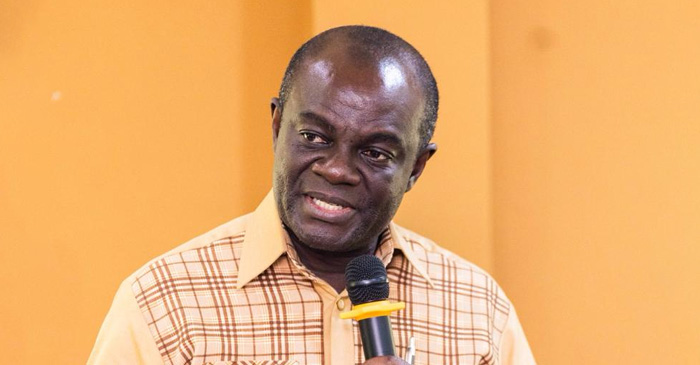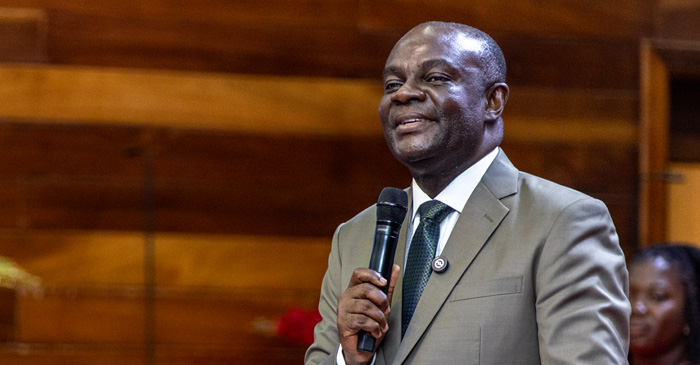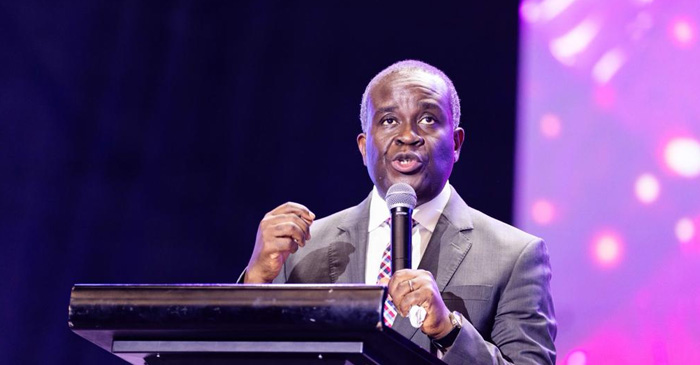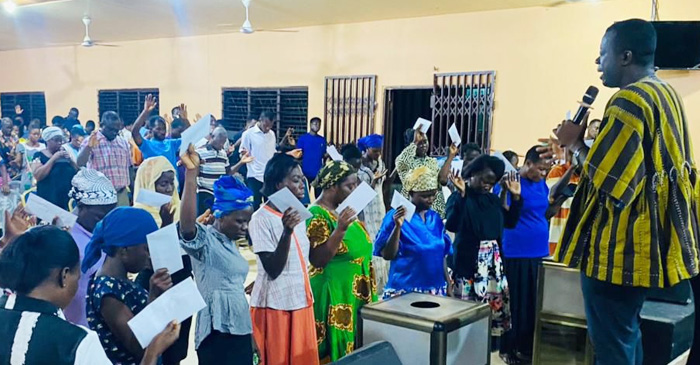
Introduction
God has a divine intention – an eternal purpose (Ephesians 3:10-11) – predicted at the fall of man (Genesis 3:15), promised to Abraham (Genesis 12:7), revealed in Christ Jesus (Galatians 3:16, 29), and destined for consummation at the second coming of Christ (1 John 3:2; Revelation 7:15-17). Between the ascension of Christ and the fulfillment of God’s eternal purpose at His second advent, the Holy Spirit introduces major doctrinal revelations that refresh, rejuvenate, reawaken, and sustain the spiritual fervor of the Universal Church.
These doctrinal revelations emerge periodically within the Universal Church to avert spiritual stagnation and backsliding among the saints, safeguard against the loss of the first love for God’s Kingdom (Revelation 2:4), and prepare believers to attain the full stature of Christ (Ephesians 4:11-13). Since the sixteenth century, these revelations have periodically revitalized the Church as believers await Christ’s return.
From the Protestant Reformation in the sixteenth century (1501–1600) to movements in the twentieth century (1901–2000), the Holy Spirit has imperceptibly stirred “the hearts of believers in various sections of the professing Church to study the Scriptures, and in so doing, found a flood of light gradually pouring into their minds.” This “flood of light” became impactful doctrinal revelations, propagated globally by specific groups and leaders chosen by the Holy Spirit.
According to Bishop Orji, the Protestant Reformation revealed the doctrine of salvation by grace alone (Sola Gratia), through faith alone (Sola Fide), and in Christ alone (Solus Christus). In the seventeenth century, the Mystics promoted intimacy with God through holiness and personal devotion, also known as quietism. In the eighteenth century, the Moravian Brothers inspired aggressive missions, fervent corporate prayers, and Christ-centered lifestyles. The Plymouth Brethren in the nineteenth century introduced dispensationalism and pre-tribulation rapture. By the twentieth century, the Brethren of the Local Churches emphasized the Church as the one new man and the saints as the expression of Christ to the world, a teaching known as God’s Economy.
What, then, is the major doctrinal revelation for the twenty-first century? According to Ferguson, understanding the present requires looking to the past experiences of those who sought to follow Christ.
This paper argues that for the twenty-first century, The Church of Pentecost’s “Possessing the Nations Agenda” is the major doctrinal revelation. It aligns with God’s divine purpose and plan to refresh, revive, reawaken, re-equip, and unleash believers to transform their world with the values and principles of the Kingdom of God.
Fulfilling the Eternal Purpose of God
The Lord God’s divine agenda – His eternal purpose – has been revealed in the Holy Scriptures. However, God’s entire plan for accomplishing His eternal purpose is not fully disclosed to mankind. As Jesus said in John 16:12, there were many things the disciples were not ready to receive. Jesus promised the Holy Spirit would reveal all that believers needed to know.
In Eden, God revealed that the seed of the woman would bruise the serpent’s head. To Abraham, God revealed that through him, the entire world would be blessed. These promises became a foundation of God’s divine plan. In Galatians, Apostle Paul explained that the “seed of the woman” is the same as “Abraham’s seed,” referring to Christ Jesus. In Galatians 3:16 (and Hebrews 2:16), Paul identified Christ as the fulfillment of these promises.
Christ defeated Satan on the cross, redeeming humanity from its fallen state and reconciling mankind with God, thus setting the stage for God’s ultimate purpose: raising fallen humanity to attain sonship – bearing the image, expression, and full stature of Christ.
Attaining God’s sonship is the greatest blessing and the highest calling. Romans 8:29-30 and Ephesians 4:11-13 describe this as a process that continues “until we all reach unity in the faith and knowledge of the Son of God and become mature, attaining to the whole measure of the fullness of Christ” (NIV). This process underpins Christ gathering the saints to form the one new man – the Church (Ephesians 2:15).
To prevent believers from losing focus or falling into spiritual slumber as they await His return, the Holy Spirit sustains the momentum of God’s purpose by granting doctrinal revelations throughout history.
God’s Eternal Purpose, Divine Plan, and Doctrinal Revelations
This paper emphasizes the undeniable correlation between God’s eternal purpose, His divine plan, and doctrinal revelations within the Universal Church. Pentecostal theologian Opoku Onyinah traced the Pentecostal Movement’s roots to the teachings of John Wesley and John Fletcher in the eighteenth century. Wesley’s theology was influenced by the Moravian Brothers, who were, in turn, inspired by Catholic Mystics of the seventeenth century. These Mystics’ pietism teachings and lifestyle reflected the Reformation doctrine restored in the sixteenth century.
This paper agrees with the Spirit-led theologian’s assessment and asserts that the Holy Spirit has consistently introduced major doctrinal revelations since the Protestant Reformation to keep the Universal Church aligned with God’s purpose.
For the twenty-first century, “Possessing the Nations Agenda” stands as the major doctrinal revelation, continuing the Holy Spirit’s work in guiding the Church toward God’s eternal plan.
A Tour into the Centuries since the Reformation (1501 to 2000 AD)
According to Titus Chu, a Chinese American missionary, the Lord has consistently instigated significant movements within the universal body of Christ through doctrinal revelations over the centuries, beginning with the Reformation. The Protestant Reformation was undoubtedly a monumental shift in the universal Church, and its impact continues to resonate globally today. Chu observes that, following the Reformation, equally profound moves by the Holy Spirit have emerged periodically within the Church through major doctrinal revelations. These revelations advance the Church and its members towards attaining the full stature of the Son of God.
Drawing from the assessments of Opoku Onyinah, Chu outlines the following major doctrinal revelations across the centuries:
The 1520s: The Reformation, led by Martin Luther, restored the central theme of the Gospel to Christendom.
The 1620s: The Mystics, led by Jeanne-Marie Bouvier de la Motte Guyon (commonly known as Madame Guyon), introduced the truths of quietism and pietism, emphasizing personal devotion and holiness.
The 1720s: Vicount Nicholaus Ludwig von Zinzendorf (commonly known as Vicount Zinzendorf), a German aristocrat, spearheaded the Moravian Brothers in propagating consecrated life unto the Lord. He also led one of the largest evangelical missions since the Apostolic era and instituted the famous 24/7 corporate global prayers that lasted for 100 years.
The 1820s: The Plymouth Brothers, led by John Nelson Darby, broke forth the doctrine of dispensationalism and pretribulation rapture based on 2 Thessalonians chapter 2. This doctrine, once controversial, has become a cornerstone of modern Christian theology, giving rise to the Scofield Study Bible and Darby Bible translations.
The 1920s: Watchman Nee, leading the Brethren of the Local Churches, presented the doctrine of God’s Recovery Work through God’s Economy. He taught that Christ pours Himself into believers, enabling them to manifest Christ physically wherever they go. Collectively, these believers express Christ as one new man – the Church – across all localities.
Chu observed a recurring pattern: the Holy Spirit raises servants with pivotal doctrines in the “twenties” of each century. He predicted that in the 2020s, the Lord would raise another group to break forth a significant doctrinal revelation for the universal Church. In 2005, Chu wrote, “It seems that the Lord raises up a group of servants every hundred years. According to this calculation, the Lord might raise another group of people up in another 20 or 25 years.”
This paper posits that the “Possessing the Nations Agenda” of The Church of Pentecost is the major doctrinal revelation the Holy Spirit has granted to the universal Church for the 21st century.
Conclusion
This paper affirms that God has an Eternal Purpose revealed in the Scriptures. However, His Divine Plan for achieving this Purpose remains partly concealed from humanity. As part of this plan, the Holy Spirit has consistently unveiled major doctrinal revelations since the Protestant Reformation to keep believers aligned with God’s Purpose and to prepare the Saints for Christ’s second advent. Building on the observations of Apostle Professor Opoku Onyinah and Titus Chu, this paper firmly asserts that the Holy Spirit has raised Christian groups and leaders to introduce vital doctrines from 1501 AD to 2000 AD. Moreover, it maintains that the “Possessing the Nations Agenda,” birthed in 2018 by The Church of Pentecost, represents the major doctrinal revelation for the universal Church in the 21st century.
The second part of this paper will analyze the revival brought about by the “Possessing the Nations Agenda” within global Christianity and establish how the Holy Spirit may use it to dismantle even greater strongholds in the 21st century.
References
Chu, Titus. Being One with the Ministry to Speak the Healthy Words. (Vol. 2). Illinois: Chicago Bibles & Books, 2005.
Ferguson, Everret. 2005. Church History Volume 1: From Christ to the Pre-Reformation. Zondervan Publishers
Franklin, B. The Founding Father of the USA greatly praised the
Moravians www.ushistory.org
Ice, Thomas. “John Nelson Darby and the Rapture”. The Journal of Ministry and Theology 17(1), 2013. www.rapture-notes.com Accessed 29/03/2025
Lee, Witness. The Economy of God. Anaheim, CA: Living Stream Ministry, 1968.
Lee, Witness. The Mysteries in God’s New Testament Economy. Anaheim, CA: Living Stream Ministry, 1990.
Onyinah, Opoku. “Roots and History of the Pentecostal and Charismatic Movement“
Orji, F. (May 2017). SAVED BY GRACE ALONE, THROUGH FAITH ALONE, IN CHRIST ALONE. Pastoral Address, Fifth Annual Synod of the Anglican Diocese of CANA West, USA (Texas 2018)
Siemens, Leelore. Church History podcast www.youtube.com accessed on 2/4/2024
Turner, W.G. & W.S. Gelder. Brief Sketch of the Life and Labours of John Nelson Darby. London: Thomas Weston Publishers, 1901
Weremchuk, M. S. 2018. John Nelson Darby Research Papers www.researchgate.net Accessed 29/03/2025
Written by Pastor Daniel Essuman Koomson














